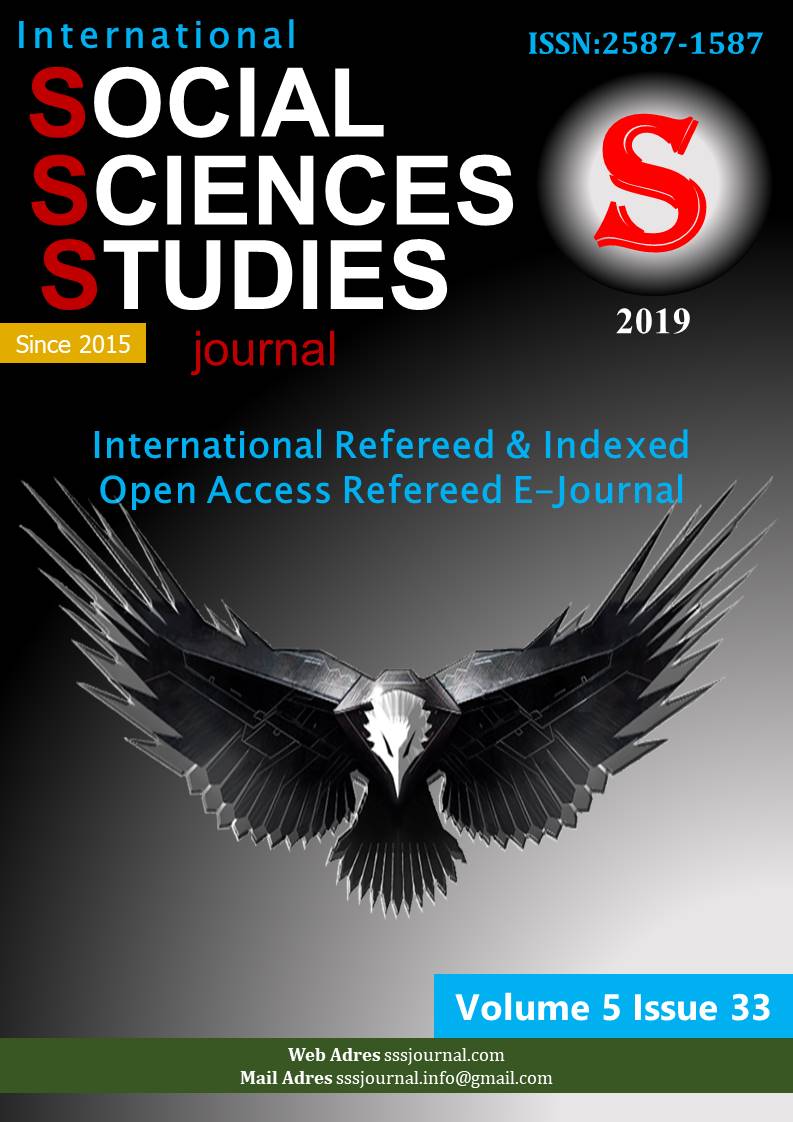Author :
Abstract
Türkiye’de yıllar içerisinde yüksek enflasyon rakamları, aşırı dalgalı döviz oranları ve beklenenin altında görülen büyüme oranları yaşanmıştır. 2000 yılında yaşanan küresel krizinden sonra Türkiye’nin uygulamış olduğu sıkı para ve maliye politikası uygulamaları ilerleyen yıllarda düşük enflasyon oranı, istikrarlı döviz kuru ve yükseliş eğilimde ekonomik büyüme oranları şeklinde sonuç vermiştir. Bu çalışmada Türkiye için 2002:Q1 ile 2018:Q3 yılları arasındaki dönem incelenmiştir ve alınan ekonomik başarının, zaman serileri arasında VAR modeli ile değişkenlerin bağlantıları yorumlanmıştır. Ulaşılan sonuçta enflasyon ve ekonomik büyüme oranları arasında tek yönlü güçlü bir nedensellik ilişkisi tespit edilmiştir. Bu bağlamda ekonomik büyümenin de enflasyon oranlarını yukarı yönde etkilediği sonucuna ulaşılmıştır. Yani ekonomik büyümenin enflasyonu arttırdığı gözlenmiştir. Türkiye'nin bazı dönemlerde çözmekte zorlandığı enflasyon probleminden kurtulmak için öncelikli olarak uygulaması gereken politikası ithal bağımlılığını azaltmak olmalıdır. Yerli üretim desteklenmeli, bu konuda gerekli olan teşvik ve projeler belirlenmeli ve etkin bir şekilde uygulanmalıdır. İthal bağımlılığının azaltılması ve mümkünse sonlandırılması enflasyonun kontrolü ve istikrarı hususunda oldukça fazla önem arz etmektedir.
Keywords
Abstract
Over the years higher inflation rates, fluctuation at currency rates and underrated growth rates has happened in Turkey. After 2000 with stricter monetary rules came up as a consequence with high growth rates and healthy microeconomic figures. In this study, economic key indications are conducted as a VAR model for 1997: Q1 and 2017: Q4. This situation turns out as a consequence of achievement monetary and fiscal policies. Finally, one-way strong causality relationship between inflation and economic growth rates has been determined. In this context, it has been concluded that economic growth affects inflation rates upwards. In other words, it is observed that economic growth increases inflation. The policy should apply primarily to get rid of the difficulty in solving problems of Turkey's inflation in some periods should be to reduce import dependency. Domestic production should be supported and the necessary incentives and projects should be identified and implemented effectively. Reducing and, if possible, terminating import dependency is very important in terms of control and stability of inflation.
Keywords
- Aydın, C., Esen, Ö. & Bayrak, M. (2016). Inflation and economic growth: a dynamic panel
- Aydın, C., Esen, Ö. & Bayrak, M. (2016). Inflation and economic growth: a dynamic panelthreshold analysis for Turkish Republics in transition process. Procedia - Social and Behavioral Sciences, 229, 196-205.
- Bullard, J. & Keating, J.W. (1995) The long-run relationship between inflation and output in postwar economies. Journal of Monetary Economics, 36 (3) December, pp.477-496.
- Balcilar, M., Gupta, R. & Jooeste, C. (2017). The growth-inflation nexus for the U.S. from 1801 to 2013: A semiparametric approach. Journal of Applied Economics, 20(1), 105-120
- Barro, R. J., (1995), “Inflation and Economic Growth”, Bank of England Quarterly Bulletin, 35 (2), 407-443.
- Barro, R. J., (1996), “Inflation and Growth”, Federal Reserve Bank of St. Louis Review, 78(3), 153-169.
- Bruno, M. & Easterly, W., (1996), “Inflation and Growth: in Search of a Stable Relationship”, Federal Reserve Bank of St. Louis Review, 78(3), 139-146.
- Bruno, M. & Easterly, W., (1998), “Inflation Crises and Long-run Growth”, Journal of Monetary Economics, 41(1), February, 3-26.
- Chowdhury, Anis, (2002), “Does Inflation Affect Economic Growth? The Relevance of The Debate for Indonesia”, Journal of Asia Pacific Economy, 7(1), 20-34.
- Erıcsson, N.R., Irons, J.S. & Tryon, R.W. (2000) Output and inflation in the long run. Board of Governors of the Federal Reserve System, International Finance Discussion Papers, No: 687.
- Fischer, Stanley. “The Role of Macroeconomic Factors in Growth,” Journal of Monetary Economics (December 1993), pp. 485–512
- Karaca, O. (2003). Türkiye'de enflasyon - büyüme ilişkisi: zaman serisi analizi. Doğuş Üniversitesi Dergisi, 4(2), 247-255.
- Kasidi, F., & Mwakanemela, K. (2013). Impact of inflation on economic growth: A case study of Tanzania. Asian Journal of empirical research, 3(4), 363-380.
- Li, M. (2006). Inflation and economic growth: Threshold effects and transmission mechanisms. Department of Economics, University of Alberta, 2(5), 8-14.
- Mallik, G. & Chowdhury, A., (2001), “Inflation and Economic Growth: Evidence from four South Asian Countries, Asia-Pacific Development Journal, 8 (1) June, 123-135.
- Mamo, F. (2012). Economic Growth and Inflation: A panel data analysis.
- Morales Meoqui, J. (2010). Smith's and Ricardo's common logic of trade.
- Qaiser, M., Mansur, K. & Furuoka, F. "Inflation and economic growth in Malaysia: A threshold regression approach." ASEAN Economic Bulletin 26.2 (2009): 180-193.
- Ozel, H. A. (2012). Ekonomik büyümenin teorik temelleri. Çankırı Karatekin Üniversitesi İİBF Dergisi, 2(1), 63-72.
- Ozpence, A. I. (2016). Analysis of the relationship between inflation and economic growth in Turkey. Journal of Economics Finance and Accounting, 3(3). 180-191.
- Paul, S., Kearney, C. & Chowdhury, K., (1997), “Inflation and Economic Growth: A MultiCountry Empirical Analysis”, Applied Economics, 29, 1387-1401.
- Rankin, K. (2011, July). Mercantilist reasoning in economic policy making. In paper for the 2011 Conference of the New Zealand Association of Economists, Wellington (Vol. 1).
- Sarel, M. (1996), “Nonlinear Effects of Inflation on Economic Growth”, IMF Staff Papers, 43(1), 199-215.
- Solow, R. M. (1956). A contribution to the theory of economic growth. The quarterly journal of economics, 70(1), 65-94.
- Thirlwall, A.P. & Barton, C.A., (1971), “Inflation and Growth: The International Evidence”, Banco Nazionale del Lavoro Quarterly Review, No:98, 263-275.
- Tun Wai, U., (1959), “The Relation Between Inflation and Economic Development: A Statistical Inductive”, IMF Staff Papers, Vol:7, 202-209.
- Topcu, E . (2017), Enflasyon Oranı-Ekonomik Büyüme İlişkisi: Türkiye Örneği. Nevşehir Hacı Bektaş Veli Üniversitesi SBE Dergisi, 7 (2), 180- 191.





